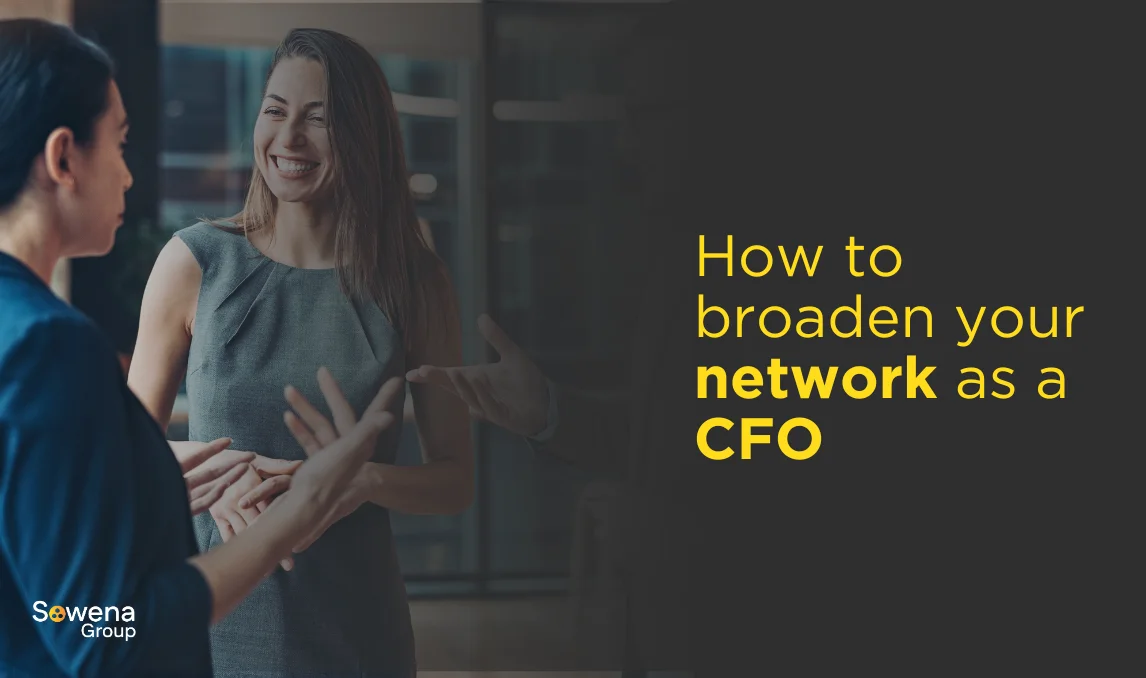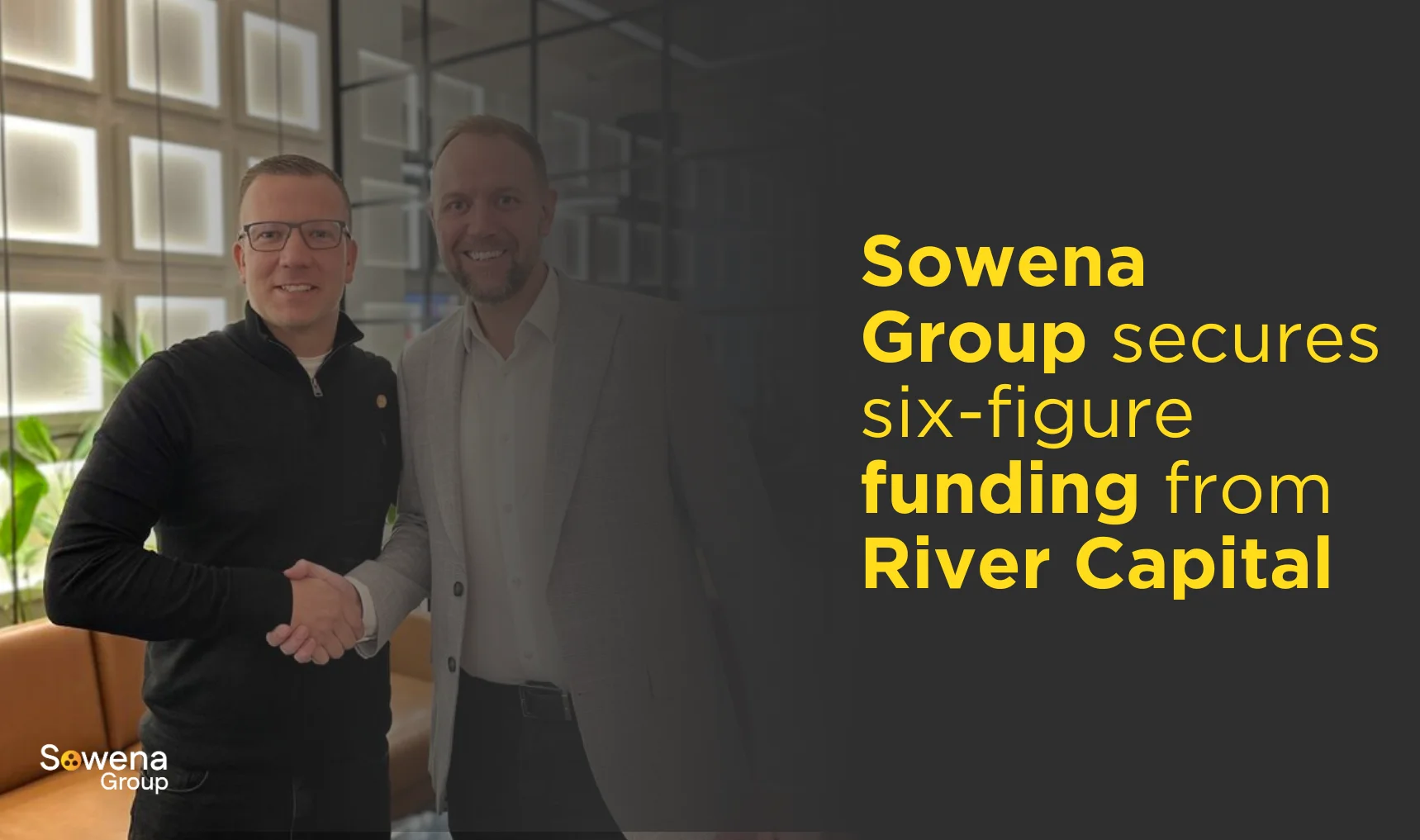
How To Network Successfully In Senior Finance
09 May, 20251:00
You’re brilliant at your job. Your numbers are solid, your team respects you, and you’ve got a track record that speaks for itself. But lately, it feels like that’s not enough.
You're watching people with less experience land the roles you’ve been eyeing. They seem to know the right people, get into the right conversations, and somehow find out about the right opportunities, before they’re even advertised. And you’re left wondering, “What am I missing?”
Here’s the truth: the higher you climb, the less your next opportunity comes from a job board — and the more it comes from a conversation.
As a senior consultant at Sowena Group, I’ve worked with hundreds of finance professionals in your position. The ones who land commercial leadership roles, pivot into exciting industries, or get tapped on the shoulder for that next move? They’re not always the loudest in the room. But they know how to be known.
In this article, you’ll learn how to approach networking like a strategic advantage — without being fake, pushy, or performative. You’ll walk away with practical ways to build relationships that move your career forward — while staying true to who you are.
Why Networking Feels Awkward for Finance Professionals
Let’s be honest: you didn’t get into the field because you love small talk and self-promotion.
You’re used to working with facts, delivering under pressure, and letting your results speak for themselves. So when someone says, “You need to network more,” it can feel vague at best, and insincere at worst. You’re probably thinking:
“I’m not a salesperson. I don’t want to pretend to be interested in people just to get something out of them.”
And that’s fair. The finance world often places value on being measured, rational, and quietly competent. You’re not rewarded for being flashy, you’re rewarded for being right. But here’s the catch: once you hit a certain level, it’s no longer just about being right. It’s about being seen.
And that’s where the discomfort creeps in.
Networking has a PR problem. It’s been sold as cocktail events and name-dropping. But that’s not what it looks like when it’s done well — especially in finance. Good networking isn’t about collecting contacts or charming your way into a job. It’s about building relevance, visibility, and trust over time.
In fact, you’re probably already doing it — you just don’t call it “networking.” Every time you build a relationship with a stakeholder, stay in touch with a former colleague, or offer someone advice without expecting anything in return - that is networking.
The key is to start being more intentional about it.
What Networking Really Looks Like at a Senior Level
At your level, networking isn’t about handing out business cards or sending awkward LinkedIn messages. It’s about building relationships that position you as someone who’s visible, valuable and connected.
Here’s what it actually looks like for senior finance professionals:
1. Internal Networking: Become Commercially Visible
This isn’t about office politics. It’s about making sure people outside of finance understand the impact of what you do. Ask yourself:
- Do the heads of Sales, Operations or Marketing know you?
- Do they understand how your work supports their goals?
- Have you positioned yourself as someone they’d call when a strategic project lands?
Influence in your business often starts with being known outside your immediate function. Finance can easily become siloed. So break out of that bubble.
2. External Networking: Curate Your Circle
This is where future roles, projects and board seats often come from.
Think:
- Former colleagues who’ve moved into interesting roles
- Recruiters who specialise in senior finance hires (just like me)
- People you meet at industry roundtables or CIMA/ACCA events
- Strategic advisors, consultants or investors in your space
The trick isn’t to network with everyone — it’s to be intentional about staying in touch with people who operate at the level you want to be in (or above it).
3. LinkedIn: The Modern Rolodex
LinkedIn doesn’t need to be cringey. You don’t have to post every day or brand yourself like a content creator. But at a minimum:
- Keep your profile sharp and achievement-led
- Comment thoughtfully on posts in your space
- Message people when they do something noteworthy — even just to say ‘congratulations’
Visibility compounds. People remember who’s paying attention.
How to Build an Authentic Networking Strategy
If you want networking to work, it needs to feel like you. That means no forced conversations, just clear intent, authentic, and consistent.
Here’s a simple framework to guide you: The 3R Model — Relationships, Relevance, Reciprocity.
1. Relationships: Focus on depth, not volume
You don’t need hundreds of contacts. You need the right dozen. Start by identifying:
- 3 people inside your business who are influential outside of finance
- 3 people you’ve worked with before that you rate highly
- 3 external contacts (recruiters, peers, mentors) who you trust or want to learn from
That’s your core network. Nurture it. Drop a message, share something useful, offer help. Let them know you’re thinking of them — without asking for anything.
2. Relevance: Stay top of mind for the right reasons
This is about showing up in ways that matter.
- Got a win in your department? Share the impact with your wider network (not just your boss).
- Attended a roundtable or webinar? Post a quick takeaway on LinkedIn.
- Saw an article that relates to someone’s current challenge? Send it their way.
Relevance builds familiarity. Familiarity builds trust.
3. Reciprocity: Give before you ask
People remember who helped them. That doesn’t mean offering favours constantly — it just means showing up generously.
- Make introductions
- Share job leads you’re not pursuing
- Offer your input when someone’s stuck
When the time comes to ask for support - a conversation, an introduction, a referral. You’ll already have earned the right to do it.
How to network successfully in finance.
Here’s what networking really leads to and why it matters more than ever at your level.
Opportunities Come to You
When you’re visible, valuable, and trusted, people start thinking of you before a job ever hits the market.
That might look like:
- A former colleague flagging a Head of Finance role before it’s posted
- A recruiter shortlisting you for a strategic transformation role based on a recent conversation
- A CFO recommending you for a panel, advisory board, or M&A project because they remembered a smart point you made months ago
The higher up you go, the more the market shifts from application-led to invitation-led.
You’re Seen as a Strategic Operator — Not Just a Functional One
Strong networks signal that you’re trusted, commercially minded, and plugged into what’s happening beyond your own function. That’s exactly what boards and leadership teams are looking for.
You become the kind of person people want in the room — not just the one they send reports to.
Visibility Compounds Over Time
This isn’t about getting instant results. But what starts as a single comment, message or coffee often leads to something far bigger six months later.
You won’t always know what’s “working” in the moment. But trust that visibility, done consistently and authentically is building career capital.
When networking becomes part of how you operate — not just something you do when job hunting — it creates opportunities you can’t plan for. And those are often the ones that change everything.
Final Word: Make It a Habit, Not a Hack
If you only network when you need something, it shows. And it doesn’t work.
The people who gain the most from networking aren’t the ones who are naturally outgoing or endlessly available. They’re the ones who treat it like a habit. A quiet, consistent part of their career toolkit.
Here’s how you do that without it feeling like a full-time job:
Block time for it
Set aside 30 minutes every two weeks to reconnect with someone, comment on posts, or check in with a recruiter. That’s it. No overthinking. Just action.
Build it into what you already do
Did someone on your team do something impressive? Give them a shout-out on LinkedIn. Attending a quarterly meeting with cross-functional heads? Use it as a touchpoint to build rapport.
Be intentional, not transactional
Ask yourself: What am I building with this person? Whether it’s trust, context, or mutual respect — think long-term. Don’t just show up when you want a favour.
Need Help Making the Right Connections?
If you're a senior finance professional ready to step into a bigger role — but unsure how to build the relationships that get you there — start by having a conversation with someone who gets it.
I’m a Senior Consultant at Sowena Group, and I work exclusively with senior finance professionals like yourself. Whether you’re exploring new opportunities or simply want to raise your visibility in the market, I can help you build connections with the right people and explore the opportunities available to you.
👉 Connect with me on LinkedIn or reach out directly for a confidential chat at dave@sowenagroup.co.uk


